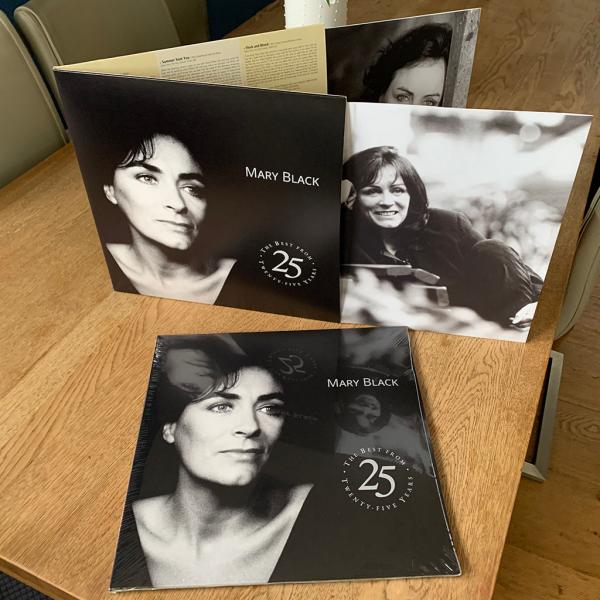The Pure-Voiced Enchantress of Folk Rescued by a Song in the Dead of Night
Irish singer Mary Black has returned triumphant to the fray with a beautiful new album. She talks to Colin Randall.
Not long after the funeral of her mother, a big-hearted woman of 86, Mary Black was gently coaxed by her younger son into writing a song about her.
Mary Black: 'there is a side to fame that I don't relish' The results appeared in her head so suddenly, in the middle of the night, that she had to get up to write down the words.
Black has never been known as a writer and it could easily have turned into an embarrassment, with soppy melody and bereavement-card lyrics best kept for family occasions. But the song, Your Love, is one of the better tracks on her latest album, emotional but unmawkish with an insistent, slow-building hook.
"My mother had a hard enough life, at it from 9am to 10.30pm, seven days a week cleaning offices as well as helping in dad's grocery shop to make ends meet," says Black, sipping water in a hotel near the south Dublin of her childhood.
"She instilled music in all of us, but I wanted the song to be about the whole legacy of family values and love that she gave us." The song, or perhaps the discovery that she could write after all (young Danny sharing the composing credits), helped persuade Black to resist the temptation to call it a day.
At the start of 2005, three decades after she busked with her brothers on the Staten Island ferry, Black felt she had little left to prove.
She had achieved some popularity throughout the world, but was a household name only in Ireland (and also, curiously enough, in Japan). There may be few purer, more serenely beautiful voices in any country's album charts, but as Black approached her 50th birthday last year, she knew she was never going to be a superstar.
"It was never a driving force in any case," she says. "There is a side to fame that I don't relish. I have not really been hounded, but I'd say things have become much worse, even in Ireland, and I'd hate to be starting out now. There's so much more intrusion and a more cut-throat industry."
A year ago, she went to her holiday home in Kerry, armed with Your Love and a few ideas, and asked her musicians to join her. In a few days, she recorded the first takes of eight songs. "I still wasn't sure if there was going to be an album at the end of it, but the combination of the peace of the place, the musicians I was working with, and the pleasure I felt made me realise it was something I wanted to pursue," she says. "I ended up feeling really comfortable with it."
Had she followed the instinct to retire, live performance would have dried up, too. But, still as busy as ever, she appears at London's Barbican on Sunday at the start of short British tour. The concerts will offer a reminder of Black's uncommon ability to hold audiences spellbound. Grown men have been known to go weak at the knees when she sings the traditional ballad of forbidden love, Anachie Gordon.
An American staying at the same hotel in Wales was riveted, as the band wound down after a show with an impromptu session in the bar, by an unaccompanied version of the unofficial Irish anthem, Song for Ireland. "Gee, that lady really should be recording," he exclaimed.
In fact, even a cursory look at Black's career reveals a weighty discography stretching back to her first band, General Humbert, and the best period of Frankie Gavin's outstanding De Dannan.
Greater success came when she decided to go solo. The deliberate moves popwards disappointed the old folkie followers, but they clung on for the sake of that glorious voice, and the occasional return to her roots.
One of five children, Black has three of her own. Danny, 21, is studying commerce and has his own band, Corona. Conor, 24, is travelling in South America while deciding what to do with his science degree, and 17-year-old Roisin, who pops up with Danny on the album, is still at school.
Her husband, Joe O'Reilly, is also her manager. "I'm very happy," she says. "I've got three great children, Joe and I are great pals with a fantastic relationship and I'm still singing." She feels mentally and physically strong enough to carry on as long as the renewed taste for recording and touring lasts. Her days of playing league-standard basketball may be over, but she has a new passion: Irish set dancing. "It's a great way to keep fit," she says. "You could go on for hours, and never feel the bad back."


